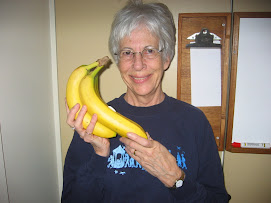
It was a wonderful turkey -- and a wonderful day. Thanks, Anya and Max.
As far as Thanksgiving goes, I'm a traditionalist. I appreciate that the vegetarians and flexitarians among us won't eat turkey, and I'm willing to make an exception for grilled salmon or some fancy veggies, but for the rest of us? It's gotta be turkey. I'm almost shocked at the friends this year who had (in one case) pork loin with quinces or (in the other) roast goose a la perigord. These are delicious and special -- but they aren't Thanksgiving.
When I lived overseas, Thanksgiving was, more than Christmas or even the fourth of July, the holiday that brought Americans together. I remember how the women of the American expat community always struggled and improvised to put together something approaching a real Thanksgiving feast, successfully enough that our Non-American friends begged for invitations.
There was only one time that American imaginations failed. In Somalia we said the hell with it and went to the Chinese restaurant for sweet-and-sour wart hog. It just wasn't the same.
Every Thanksgiving, every family gathering, is a chance to reconnect. Sometimes, when times are bad, there's a feeling that we're circling the wagons. Other times, we celebrate growth and success. There's always the feeling: we're here. We made it through, and we're together.
And besides, there's the turkey.







